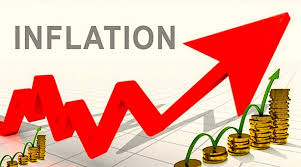Annual consumer prices rose 24.2% in March, compared with 23.2% a month earlier, according to data published by the National Bureau of Statistics on Tuesday. Prices rose 1.1% in the month.
More pain is probably on the cards. A trade war unleashed by US President Donald Trump has triggered a sharp selloff in the price of oil — Nigeria’s main export — and depressed the naira, which will push up import costs.
The currency has declined 4.2% against the dollar since Trump announced a raft of global tariffs on April 2, while oil prices have slipped to about $65 per barrel. Nigeria’s annual budget for this year assumed a crude oil price of $75.
The central bank has sold more than $650 million into the foreign exchange market this month to stabilize the naira, according to data reported by AIICO Capital Ltd., an investment management and advisory services firm in Lagos, the nation’s commercial hub.
These developments will be on the minds of Central Bank of Nigeria policymakers when they meet May 19-20. Uncertainty on the outlook for the economy and inflation may encourage officials to hold interest rates steady for a second policy meeting in a row at 27.5%.
Alongside external pressures, policymakers will be watching food costs as farmers begin planting at the start of the rainy season — a period of leaner output that might drive up prices.
Annual food inflation eased to 21.8% in March from 23.5% the month before, while core price growth accelerated to 24.4% from 23%.


